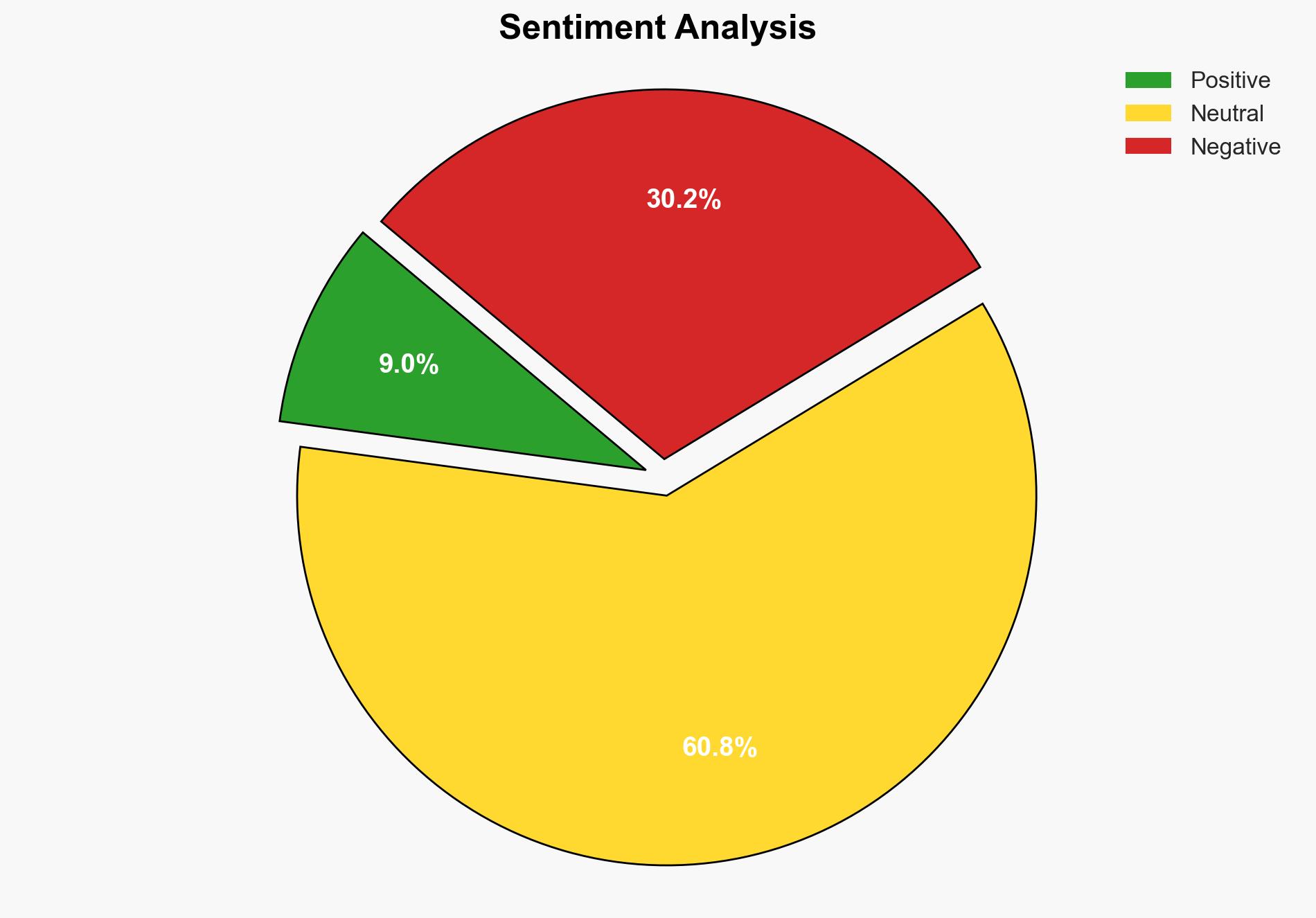Iran using drones and apps to enforce women’s dress code – BBC News
Published on: 2025-03-14
Intelligence Report: Iran using drones and apps to enforce women’s dress code – BBC News
1. BLUF (Bottom Line Up Front)
Iran is employing drones and digital applications to enforce a strict dress code for women, reflecting an intensified use of technology to suppress dissent. This strategy includes state-sponsored vigilantism, encouraging citizens to report violations via a specialized app. The implications are severe, with reports of arrests, beatings, and other human rights abuses. Stakeholders should consider diplomatic engagements and human rights advocacy to address these issues.
2. Detailed Analysis
The following structured analytic techniques have been applied for this analysis:
General Analysis
Iran’s strategy involves leveraging intrusive digital technologies to monitor and enforce compliance with the mandatory hijab law. This includes the use of drones and surveillance cameras, as well as a mobile app that allows citizens to report violations. The report highlights a significant increase in state-sponsored vigilantism, portraying compliance as a civic duty. The enforcement measures have led to severe consequences for women, including arrests and reports of violence in custody.
3. Implications and Strategic Risks
The use of technology for enforcing dress codes poses significant risks to human rights and regional stability. The systematic discrimination against women and the use of state-sponsored vigilantism could lead to increased domestic unrest and international condemnation. Additionally, the lack of judicial independence and reports of extrajudicial actions raise concerns about the rule of law in Iran. These factors could destabilize the region and affect international relations.
4. Recommendations and Outlook
Recommendations:
- Engage in diplomatic efforts to address human rights abuses and promote gender equality in Iran.
- Encourage international organizations to monitor and report on the situation, increasing global awareness and pressure.
- Support technological and regulatory measures that protect individual privacy and prevent misuse of surveillance technologies.
Outlook:
Best-case scenario: International pressure leads to reforms in Iran’s dress code enforcement, reducing human rights abuses and improving regional stability.
Worst-case scenario: Continued enforcement and increased unrest lead to further human rights violations and potential regional conflict.
Most likely outcome: Ongoing tensions with periodic protests and international criticism, with limited immediate change in enforcement practices.
5. Key Individuals and Entities
The report highlights several individuals and entities involved in the enforcement and reporting of dress code violations:
- Mahsa Amini – Her case sparked widespread protests and international attention.
- United Nations Investigator – Provided insights into the systematic discrimination and human rights violations.
- Amirkabir University – Implemented facial recognition software as part of compliance measures.
- Nazer Mobile App – Used by citizens to report dress code violations to authorities.





